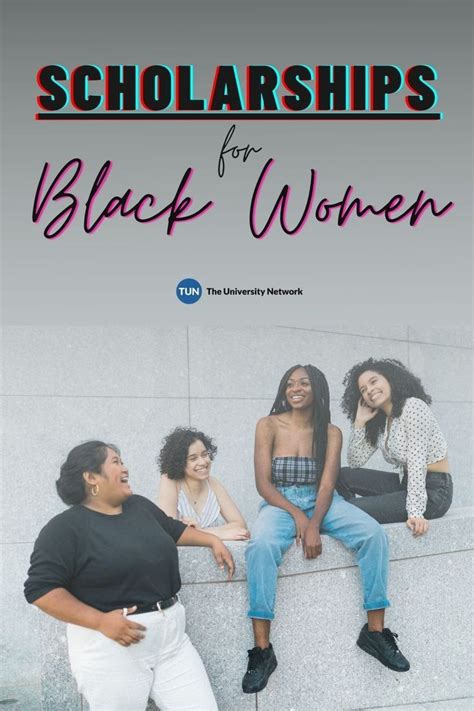Understanding the Barriers
Black women face a multitude of systemic barriers that hinder their access to higher education. According to the American Council on Education, Black women are underrepresented in college enrollment, accounting for only 13% of college students despite making up 15% of the female population. Additionally, Black women are more likely to face financial challenges, with 50% reporting financial difficulties compared to 35% of white women.

Scholarships as a Solution
Scholarships offer a lifeline for Black women seeking to overcome these barriers. They provide financial assistance that can cover tuition, fees, housing, and other expenses, making it possible for Black women to pursue their educational dreams. By empowering Black women with scholarships, we can increase their enrollment rates, graduation rates, and career opportunities.
Notable Scholarship Programs
There are numerous scholarship programs specifically designed to support Black women. Some of the most prominent include:
- Black Girls CODE Scholarship: Supports Black girls and women interested in technology.
- UNCF/Google STEM Scholarship: Awards scholarships to Black women pursuing STEM degrees.
- Thurgood Marshall College Fund (TMCF) Scholarship: Provides scholarships to Black students, including women, pursuing a variety of majors.
- P&G Scholars Program: Offers scholarships to Black women pursuing undergraduate degrees in STEM or business.
Funding Opportunities to Explore
Beyond these well-known programs, there are a wide range of scholarship opportunities available to Black women. Consider exploring the following resources:
- CollegeBoard: Search for scholarships based on demographics, interests, and major.
- Fastweb: A free scholarship search engine that includes scholarships for Black women.
- Scholarships.com: Provides a comprehensive database of scholarship opportunities, including those specifically for Black women.
Creative Application Ideas
When applying for scholarships, consider these innovative ways to stand out:
- Showcase your community involvement: Highlight your contributions to organizations that support Black women or address racial equity.
- Use storytelling to connect with the review panel: Share personal anecdotes that demonstrate your resilience, determination, and commitment to education.
- Emphasize your career goals: Explain how a scholarship will empower you to pursue a career that will benefit your community and promote social change.
Common Mistakes to Avoid
To increase your chances of success, avoid these common mistakes:
- Submitting incomplete applications: Ensure that all required materials are included.
- Failing to meet deadlines: Submit applications well before the deadline to avoid missing out.
- Not proofreading: Carefully review your application for any errors in grammar or spelling.
- Neglecting to follow instructions: Adhere to all application requirements, including formatting and word count.
Comparing Pros and Cons
Pros of Scholarships for Black Women:
- Financial assistance: Scholarships provide much-needed financial support for Black women to pursue higher education.
- Recognition and validation: Scholarships acknowledge the achievements of Black women and demonstrate support for their academic goals.
- Increased opportunities: Scholarships open doors to new educational and career opportunities for Black women.
Cons of Scholarships for Black Women:
- Competition: Scholarships are often competitive, especially those specifically targeted towards Black women.
- Eligibility criteria: Some scholarships have specific eligibility requirements that may exclude certain Black women.
- Application process: The scholarship application process can be time-consuming and require extensive documentation.
Conclusion
Scholarships play a crucial role in empowering Black women to overcome educational barriers and achieve their academic ambitions. By providing financial support and recognition, scholarships foster the next generation of leaders, innovators, and changemakers. As we work to dismantle systemic inequities in education, let us continue to invest in the potential of Black women through scholarships and other forms of support.
